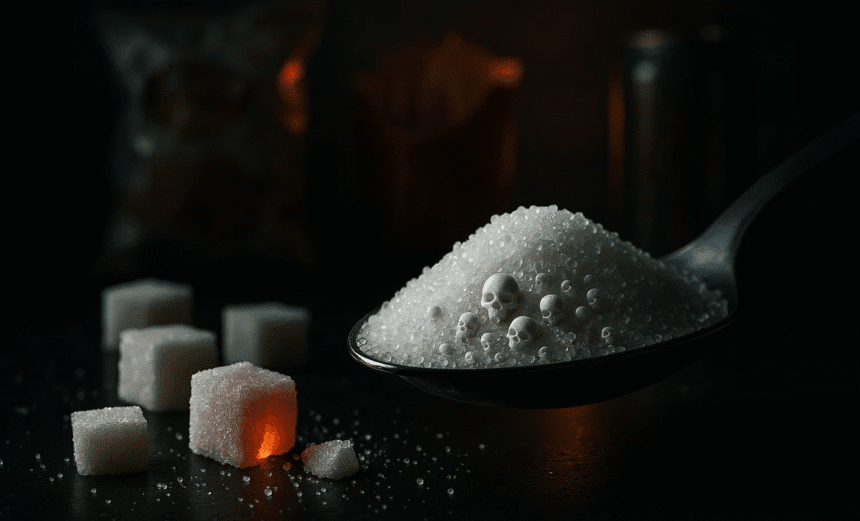Sugar- the sweet indulgence that makes desserts irresistible and mornings bearable has quietly become one of the most dangerous elements in modern diets. Once a rare luxury reserved for the wealthy, sugar is now a daily staple across the world. But behind its innocent sweetness lies a bitter truth: excessive sugar consumption is fueling a global health crisis.
The rise of sugar began in the 18th century when industrialization made it cheaper and more accessible. From the Caribbean plantations that powered colonial economies to the confectioneries of Europe, sugar quickly transformed from an elite treat into an everyday necessity. Fast forward to the 21st century, and the world is drowning in it. According to the American Heart Association, the average person in the United States consumes about 17 teaspoons of added sugar daily, more than double the recommended amount. Similar trends are seen across India, Brazil, the United Kingdom, and Australia, where processed foods and sugary drinks dominate supermarket shelves.
Unlike salt or fat, sugar hides in plain sight. It’s not just in cakes or candy, it’s in sauces, breads, cereals, salad dressings, and even so-called “healthy” snack bars. Food manufacturers discovered long ago that sugar not only enhances flavor but also prolongs shelf life and triggers the brain’s pleasure centers, making foods more addictive. As Dr. Karen Lewis, a nutrition scientist at Harvard University, explains, “Sugar creates a dopamine rush similar to certain drugs. That’s why you crave it again and again, it’s not just habit, it’s chemistry.”
The danger of sugar lies in how it works silently within the body. Natural sugars from fruits and dairy come paired with fiber and nutrients that slow their absorption, but added sugars hit the bloodstream rapidly. This spike forces the pancreas to release insulin repeatedly, and over time, the body begins to resist it, a process known as insulin resistance, which can lead to type 2 diabetes. The effects don’t stop there. Excess sugar contributes to obesity by adding empty calories, raises blood pressure and triglycerides that harm the heart, causes fatty liver disease, erodes dental health, and has been linked to cognitive decline and dementia.
According to a 2024 World Health Organization (WHO) report, poor diets high in sugar, salt, and processed fats contribute to more than 11 million deaths globally each year, with sugar playing a major role. In countries like the United States, obesity and diabetes have reached epidemic levels, largely driven by sugary beverages and processed snacks. In India, rapidly urbanizing lifestyles and increasing consumption of sweetened foods have led to a steep rise in diabetes, even among young adults. Mexico records the world’s highest soda consumption, nearly 160 liters per person annually, while the United Kingdom has taken notable steps through “sugar taxes,” which have reduced the sugar content in soft drinks by nearly 30% since 2018. Australia and New Zealand are also witnessing growing concern over childhood obesity linked to hidden sugars in breakfast cereals and packaged foods.
Governments and health agencies worldwide are now recognizing the gravity of the problem. The WHO recommends that added sugars should make up less than 10% of total daily calories, ideally under 5%. Several countries have introduced sugar taxes, front-label warnings, and educational campaigns to curb overconsumption. Meanwhile, the food industry is responding with “zero-sugar” and “natural sweetener” alternatives, though nutrition experts warn that artificial substitutes come with their own health uncertainties.
Reducing sugar intake begins with awareness. Reading food labels, cutting down on sugary beverages, and focusing on whole, unprocessed foods can make a significant difference. Nutritionist Priya Menon from India notes, “If sugar were discovered today, it might be classified as a controlled substance. The challenge is, it’s already everywhere, so reducing it requires both personal and policy-level change.”
Sugar may not come with a warning label or a bitter aftertaste, but its impact on human health is undeniable. It’s the silent culprit; sweet, satisfying, and dangerously deceptive.



















